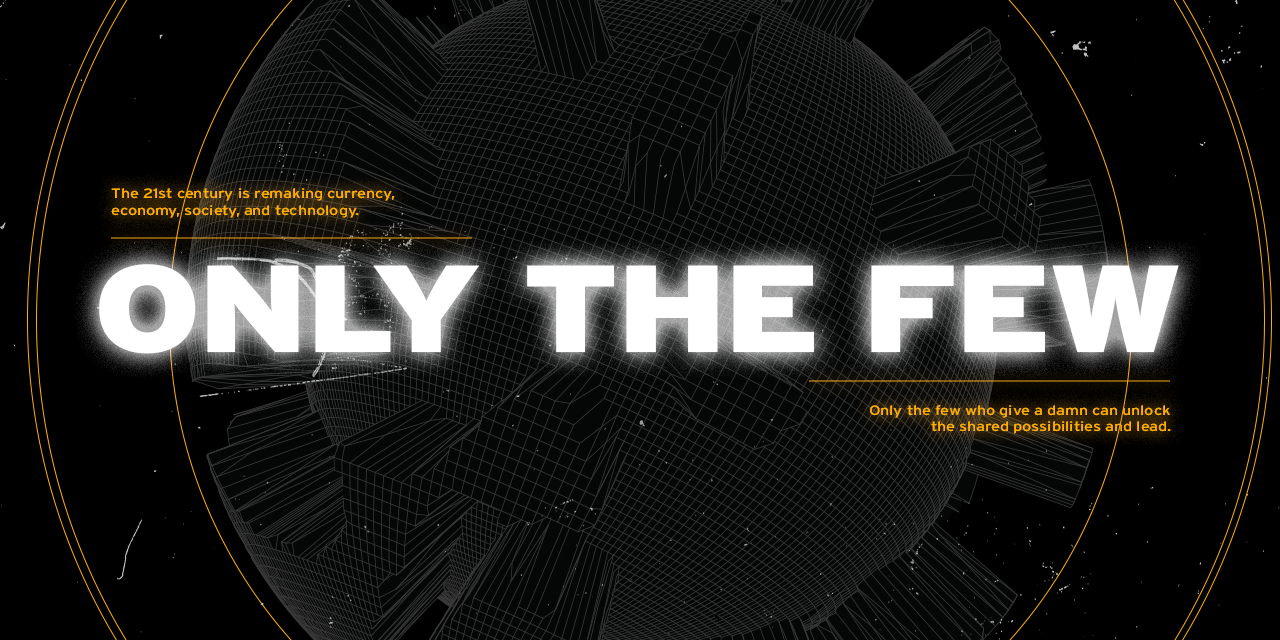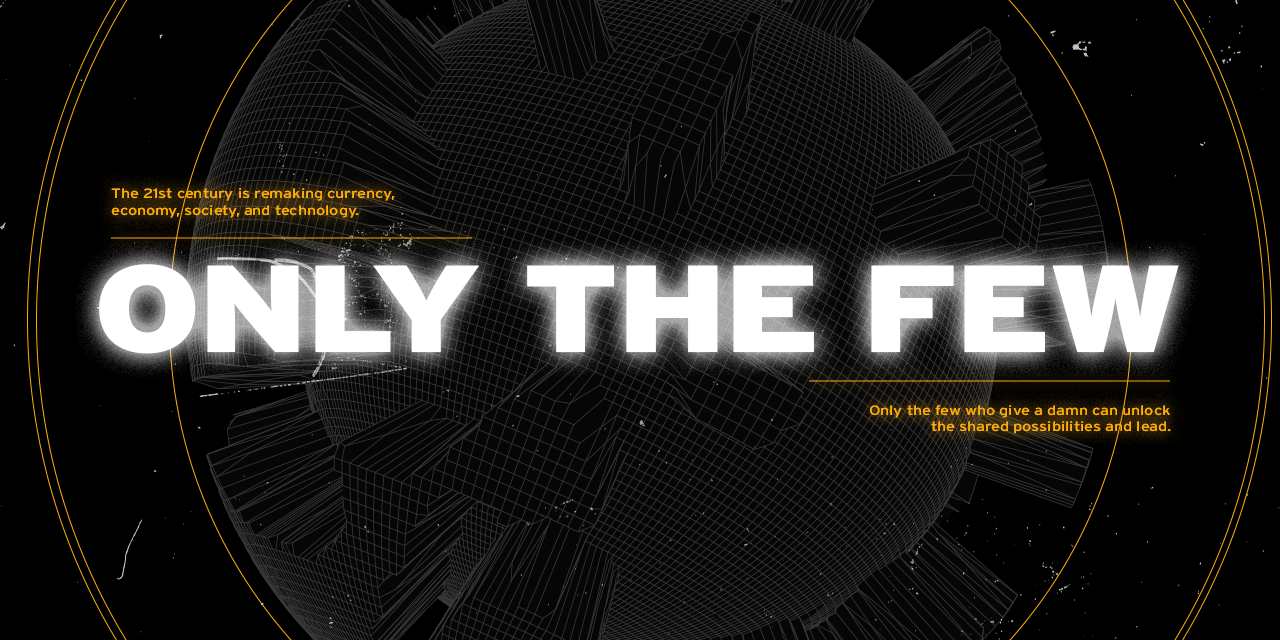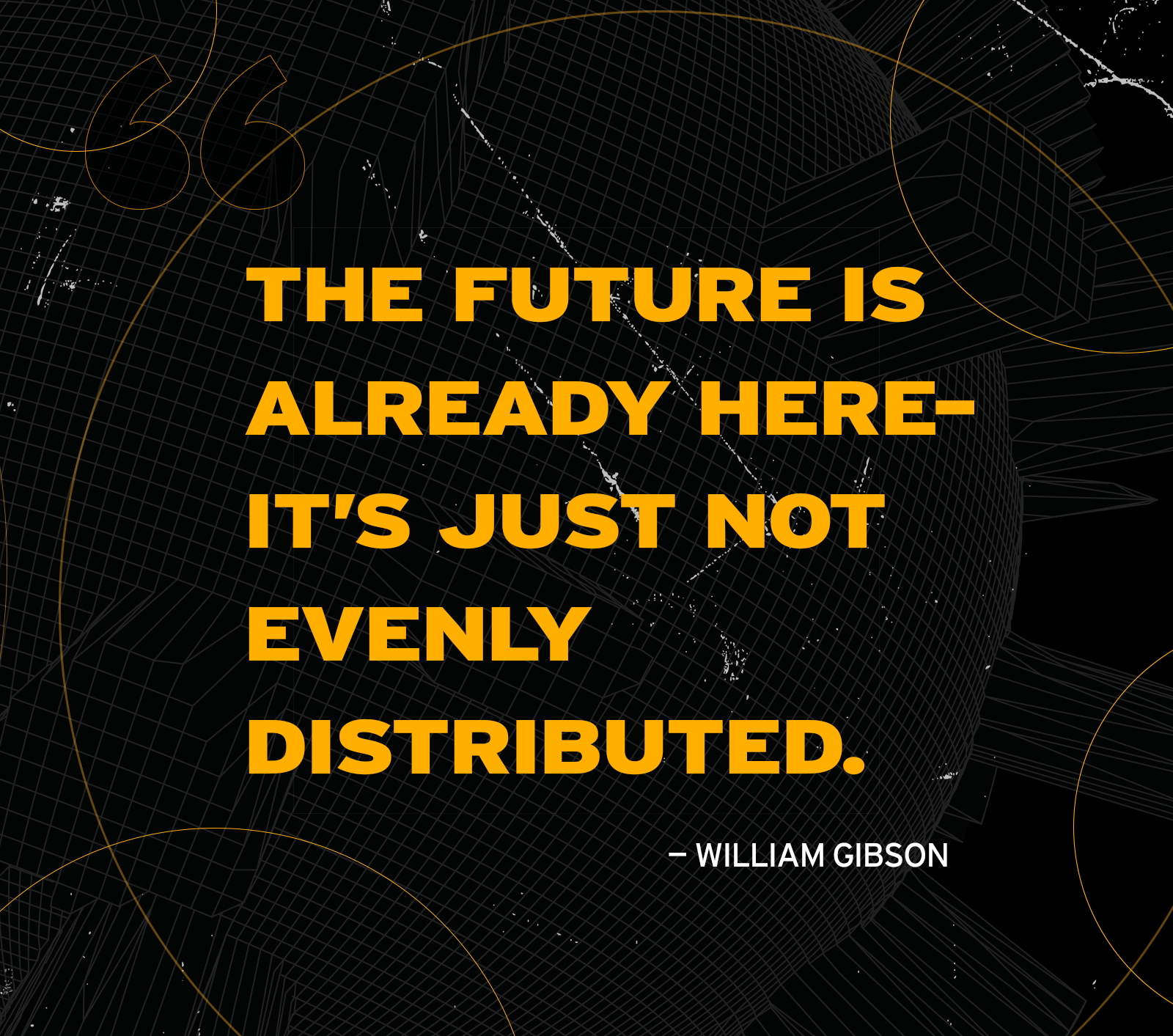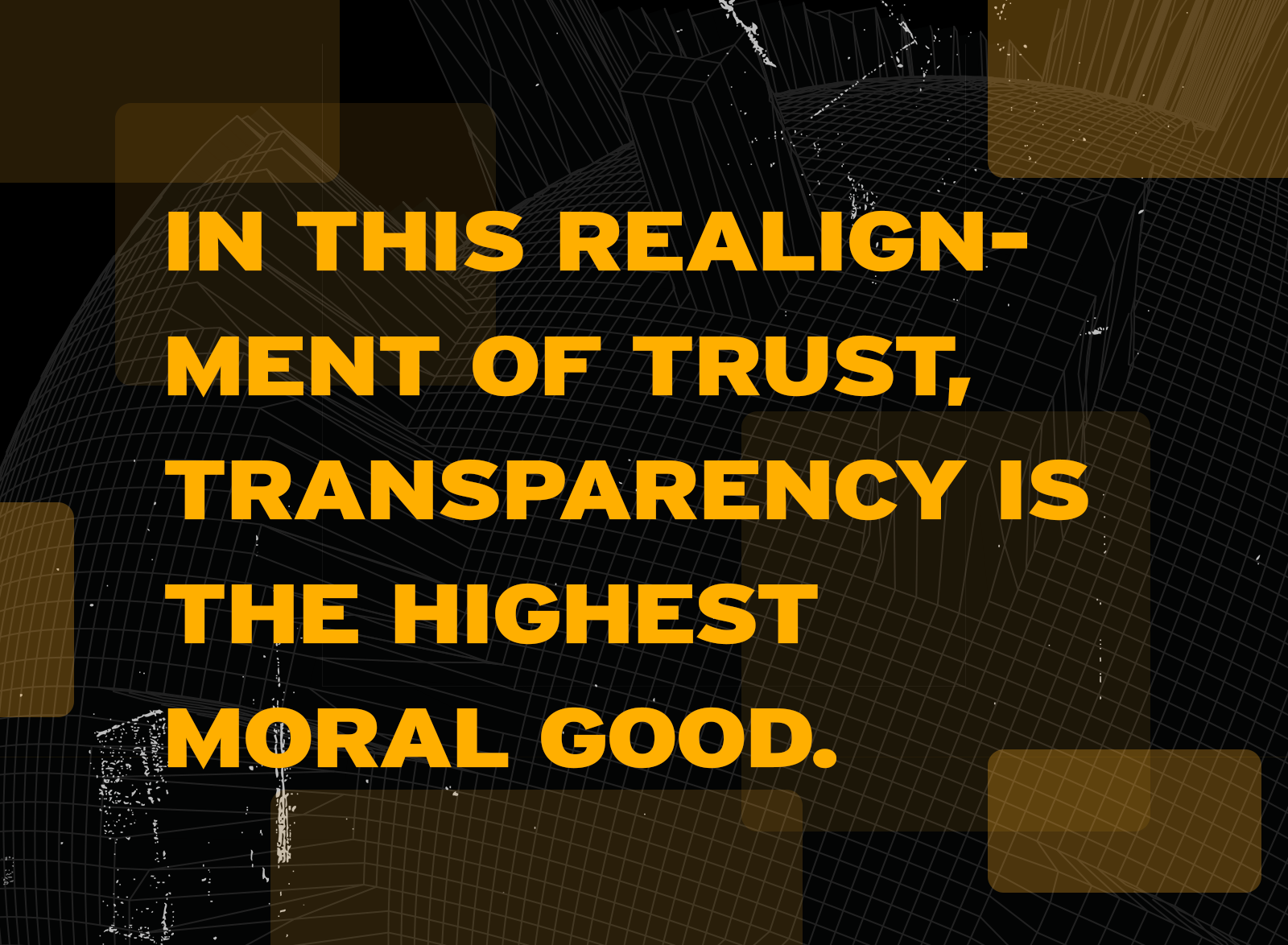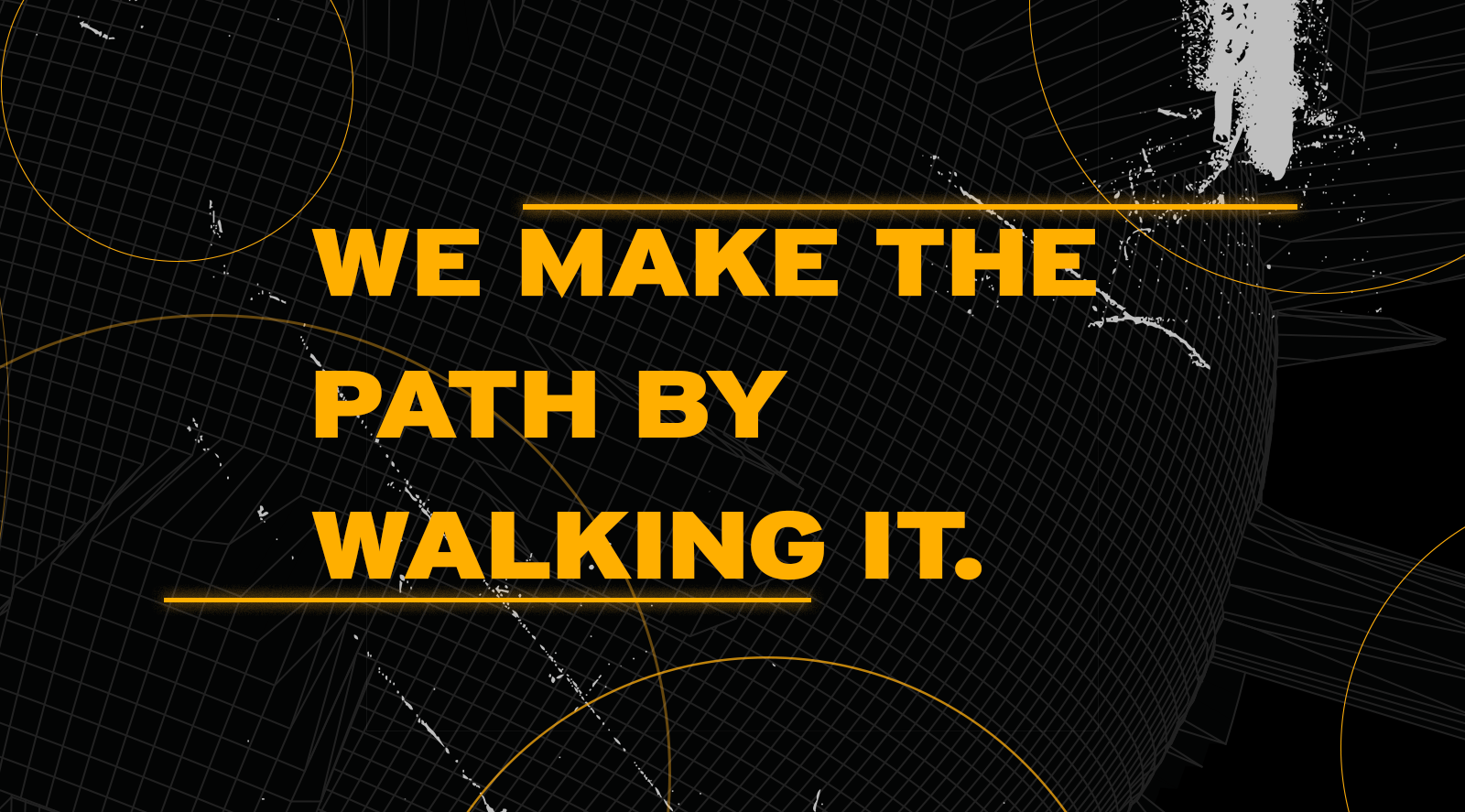Laying Out A Few Rules For 2022 And The Future Of The Emerging Economy Beyond
The last thing any of us need heading into 2022 is a scarcity mindset. And yet, this New Years’ for me—and I imagine many others—had that dangerous entanglement of dread to come alongside the requisite optimism. New Year, New You and all that was tainted with, Are we really doing this again?
We are, in fact, doing this again. We are cycling into another 365.25 days of inherent possibility called “a new year,” and this time with the drudging sense that its newness may be more fragile than those we remember from auld lang syne. I don’t need to eat up characters reminding all of us what we’ve been through, only to remind us that we’ve been through it, are still in it, and all carry a level of uncertainty of how long it will last.
What we miss, attending to all the “here we are again-ness” that the launch of 2022 brings, is an awareness that we are not actually anywhere, again. We are somewhere distinctly new, a newness that has been sneaking up on us for some time, as William Gibson famously wrote:
The Emerging Economy
Taking Gibson’s self-evident premise to heart, we don’t look for the future of work or the future of our industries “out there” by prognosticating about what’s next. We look for it “in here” by attending to what’s already here: where uncertainty is the most dense, most influential, and most ready to move the world.
When we look from this point of view, three big trends emerge:
Hyper-Specificity: We have seen this brewing for some time, but its presence is now irrefutable: the macro is now a collection of micros who happen to (occasionally) live in harmony. There is no “technology” industry. There is a SAAS-designed-for-the-Direct-to-Consumer-Manufacturing industry. There is Enterprise-AI-for-Risk-Mitigation-in-Highly Regulated-Companies industry. There are no media groups or health brands or even crypto companies. All of them are communities of communities of communities made of fragile alliances, temporary truces, and alignment around VALUES and PURPOSE, not GEOGRAPHY or FINANCIAL GAIN.
This realignment around values and purpose is no act of virtue signaling. Our weary nervous systems (and the businesses that we lead) are congregating quickly to places of psychological safety: people and businesses who we like and who are willing to work for the same world that we are. In this realignment of trust, transparency is the highest moral good.
We need to believe who you are, long before we will engage with what you do.
Fragility: As Nassim Nicholas Taleb so clearly laid out in his Incerto series, the fundamental trends of the 20th century and following increased the probability of Black Swan events (big, unplanned stuff that fundamentally alter the way things go) while simultaneously making us less resilient to such events. The centralization of power; wealth disparity; racial injustice; and the increase in demagogues, grifters, and conspiracy theory as legitimate factors in our social structures all point to the long-term build up in the fragility of the western way of life.
The presence of and our inability to subdue a global novel coronavirus outbreak is the exact kind of event Taleb warned of. We will continue to produce them (of various shapes and sizes) as long as we continue to believe that more information somehow makes us smarter, instead of dramatically more vulnerable.
“A prophet is not someone with special visions, just someone blind to most of what others see.” — Nassim Nicholas Taleb
Cynicism: The third feature of the Emerging Economy is—in some ways—the logical conclusion of the previous two. A world increasingly fractured into factions and tossed to and fro by the waves of fragile systems, will create defense mechanisms. The most common of psychological defenses is cynicism, or what I will call “anti-hope.”
Out of an abundance of caution, we will see the future more and more as a place not worth having. This is no small fault to the toxic optimists who told us to believe in the future unapologetically while simultaneously charging us for it with interest. Anti-hope is a poor solution to the revolutionary change that is creating the new economy, but it is, as I’ve said, present with more to come.
All this to say, the twenty-first century is remaking currency, economy, society, technology, and nearly every other facet of what we perceive to be the modern human existence. We can continue to do nothing in the face of everything or we can move together as neighbors in a community, prophets of a deeper consciousness, muses for the world’s yet unseen imaginations. Only the few who give a damn will actually harness the power to make their own destiny and shape the world in the making.
I am here—hopefully like you—for those few.
The Role Of Few Brands
The above factors create a new system of supply and demand. Not for particular goods and services, but particular kinds of companies. These brands will emerge as iconoclasts of the old ways (think Slack’s war on email) or vanguards of entirely unclaimed territory (what Crypto.com is—poorly—trying to do in the cryptocurrency space). Because of the unique features and countercultural sensibilities required to define and lead in the Emerging Economy, on a Few Brands will have what it takes to assume their place.
With any luck, you reading this blog means that you intend to be one of them. You must be both a watch person for signs of the following, but also a cultivator. We are entering a time of commerce where the old sayings are true: we make the path by walking it.
The Brand As Neighbor
The Few Brands are free to live transparently and unapologetically—models of hyper-specificity and builders of alliances.
Brands must first understand themselves as members of a community. Like the mercantile shops of past centuries, brands transact commerce within a network of trust (a community) and their ability to validate and expand that trust is central to their credibility.
This must destroy the Madison Avenue idea of “audience.” We are not in a land war for attention where customers are the unintended casualties. That kind of thinking will only reinforce the factors listed above. Brands don’t sell stuff to “consumers” by gaining the attention of their “audience.” (If you listen to this back, you notice how unpleasant it truly is.) Brands exist in community.
The Few Brands will exist not just as a conscious member of a community but as an intentional neighbor. One of the great tragedies of the digital age is our loss of a sense of place. Our feet are never on the ground and our bodies are never really here. Villains of the metaverse seek to manipulate our lack of groundedness by further disembodying our decisions.
But it need not be so. Technology can expand our definition of place, and with it our ability to see and understand connectedness. Brands that give-a-damn will stand beside, stand with, and stand for. They will understand themselves as a member of a community for a community. From that vantage point, they are free to live transparently and unapologetically. Brands who master the neighbor role are both models of hyper-specificity (they know exactly who they are) and builders of alliances, helping the micro serve the macro (they act as partners not competitors to build a better world).
The Brand As Prophet
The Few Brands are staking their claim to protect and serve those trodden over by the world now being left behind.
It does not take a cynic’s heart to see that the status quo is not serving us well and assumptions decades old have come to roost in ways that demand re-evaluation. In the old world, the societal role for acknowledging these defincieies was the prophet. The prophet pulled back the curtain of the world, defying the prevailing narrative, saying, “You have heard it said X, but I tell you Z” and in doing so revealed all the unclothed emperors fighting to keep things the way they were.
When the old prophets revealed the world, the powers-that-be shuddered. Their illusion shattered because someone dared to show the world as it really was, and inspire their community to action. Brands have both an obligation and and a high-differentiation opportunity to reveal the broken old ways and and champion an Emerging Economy.
Prophetic brands understand systems. They see that the fragile successes that preceded them were dependent on factors which are now fading away. They aren’t competing to win by the rules of the past, they are establishing a new set of rules, and staking their claim to protect and serve those trodden over by the world now being left behind.
The Brand As Muse
The Few Brands are instigators of insight, clarity, proactivity, and trust.
The Muses were a band of gods credited with being not just the source of art and creativity but all wisdom. Any insight into the way the world is or the way it should be found its source in the muses themselves. The industrialization of the world pinned them back to just cute little sprites triggering artists, creators, and dreamers.
A real muse is not some winged impossibility. It is the open door to insight, wisdom, understanding, and creation itself. Brands will take the role of muse by inspiring both customer and community, leading by both product and service.
Inspiration will be an act of complete authenticity in the Emerging Economy. Our allergy to platitudes is only accelerating, and so those Few Brands who wish to lead best do so not in word, but in deed. Brands that master the Muse role are instigators of insight, clarity, proactivity, and trust. They are marked by truly differentiated products and services and position themselves as designers of the future, not just recipients of it.
Passivity Is An Old Luxury
Having sat in the C-suite in all different scales of businesses and having the pleasure of running my own, I feel this shift our world to my toes. I don’t share these things to trigger you into hyperactivity or to spin up some hyper vigilance.
Your nervous system, like mine, has been stomped on enough by sellers and sayers of things. I share these things with you because I believe them to be inevitable. This Emerging Economy is opening up among us, not coming down the road. I share them with you out of my desire to connect with those that resonate with what I’m seeing and to empower those best suited to be among the Few Brands that make the world emerging.
Incrementalism and passivity is part of how we got the world we have. A world (by most) well-intended, but deeply flawed. A world so vulnerable to oligarchs and bad actors that we cannot read the news without threats of another.
Someone will make the future. Perhaps they will make it as a continuation of the worst of our past: homogenized, centralized, rigid, and inequitable. Perhaps, they will recognize the opportunity and the risks to make something else.
And the rest will watch, wondering how the future came upon them so quickly.
I hope you know which you’ll be.
